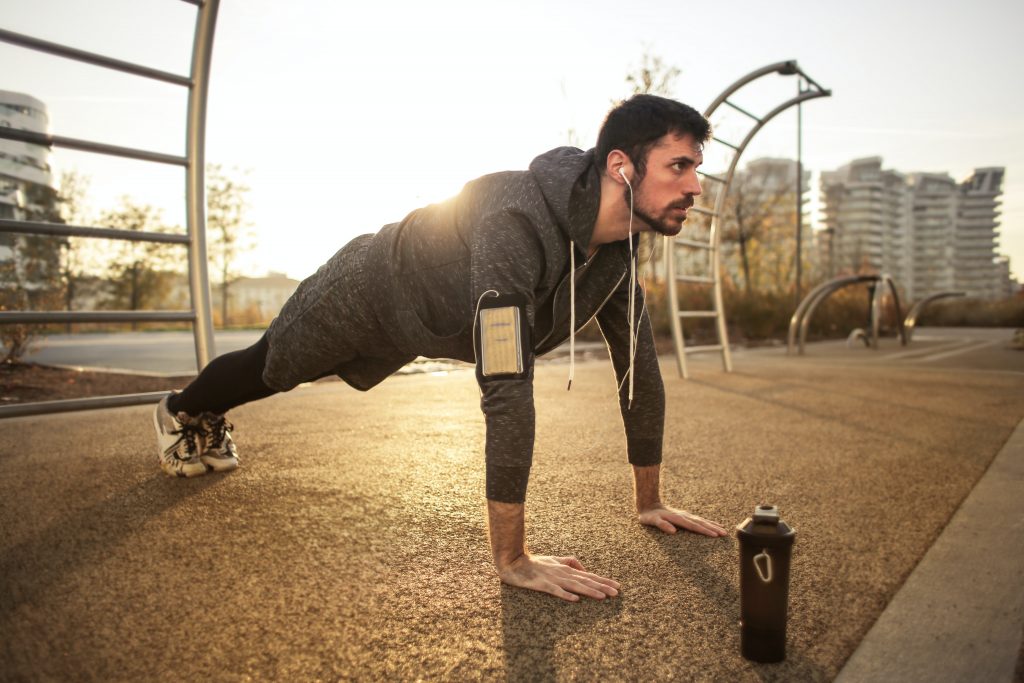
We’re going to start this off with a little bit of a spoiler alert: the BEST time of day to workout is the time when you can stay most consistent. That’s because working out regularly is always going to be better than not working out at all. But, if your schedule is flexible and you have specific goals, your results may slightly different based on when you work out.
A recent study conducted by Skidmore College1 involved 30 females and 26 males following a progressive exercise program throughout the course of 12 weeks. Participants were separated into morning exercise sessions from 6:30am-8:30am and evening exercise sessions between 6pm-8pm. The study emphasizes that everyone became leaner and stronger during the 12 weeks, but there were some specific differences depending on when they worked out. Here’s what they found:
Morning Workouts:
According to the study, those who worked out in the morning – specifically women – saw a greater overall reduction in body fat. 1 This may be because in the morning we’re more likely to be in a fasted state with can help facilitate our bodies to burn fat (instead of carbs) for energy.2
Another study suggests that those who work out in the morning may have less of an appetite throughout the day. Morning exercisers also seem to make healthier choices throughout the day.3 There’s definitely something to be said for starting the day with healthy habits!
Although it can be challenging to roll out of bed and head to the gym, there also tend to be less life distractions before the day officially gets started. This can translate to a greater likelihood for consistency – another great bonus.
Evening Workouts:
The Skidmore College study found that those who worked out in the evening – both men and women –saw greater gains in overall strength, specifically their upper body. If you think about it, that makes sense and here’s why: during the early evening and afternoon, our bodies reach their highest basal temperature. This means our muscles are warmed up and loose, leaving them ready to exert a higher level of power than earlier in the day. Consistently exerting higher levels of power means a larger increase in strength.4
For men with type 2 diabetes, there’s some additional benefits to working out in the evening. A study from 2020, discovered that men with type 2 diabetes experienced a greater improvement in insulin and blood sugar levels when compared to men who worked out earlier in the morning. Additionally, evening workouts seem to help this same group of men more easily reduce belly fat.5
Just Be Consistent:
So, yes, working out at various times of day can have different effects on your overall results. And if you have the flexibility of schedule to mix and match your workouts at different times throughout the week – more power to you! Don’t forget, though, that consistency and a healthy lifestyle are the most critical elements to reaching your health goals.
For more guidance on fitness and healthy living, check out these posts:
- 5 Smart Strategies for a Successful Workout
- No Equipment Total Body Workout
- 5 Tips to Boost Your Energy
Sources:
- Arciero, P. J., Ives, S. J., Mohr, A. E., Robinson, N., Escudero, D., Robinson, J., Rose, K., Minicucci, O., O’Brien, G., Curran, K., Miller, V. J., He, F., Norton, C., Paul, M., Sheridan, C., Beard, S., Centore, J., Dudar, M., Ehnstrom, K., … Yarde, A. (2022, January 1). Morning exercise reduces abdominal fat and blood pressure in women; evening exercise increases muscular performance in women and lowers blood pressure in men. Frontiers. Retrieved July 19, 2022, from https://www.frontiersin.org/articles/10.3389/fphys.2022.893783/full
- MediLexicon International. (n.d.). Intermittent fasting and exercise: How to do it safely. Medical News Today. Retrieved July 19, 2022, from https://www.medicalnewstoday.com/articles/intermittent-fasting-and-working-out#:~:text=Research%20suggests%20that%20during%20periods,people%20exercising%20after%20a%20meal.
- Program, 1E. and N. R. (n.d.). A Time to eat and a time to exercise : Exercise and sport sciences reviews. LWW. Retrieved July 19, 2022, from https://journals.lww.com/acsm-essr/Fulltext/2020/01000/A_Time_to_Eat_and_a_Time_to_Exercise.3.aspx
- Basti, A., Yalçin, M., Herms, D., Hesse, J., Aboumanify, O., Li, Y., Aretz, Z., Garmshausen, J., El-Athman, R., Hastermann, M., Blottner, D., & Relógio, A. (2021, February 10). Diurnal variations in the expression of core-clock genes correlate with resting muscle properties and predict fluctuations in exercise performance across the day. BMJ open sport & exercise medicine. Retrieved July 19, 2022, from https://www.ncbi.nlm.nih.gov/pmc/articles/PMC7878143/
- Exercise training elicits superior metabolic … – Wiley Online Library. (n.d.). Retrieved July 19, 2022, from https://physoc.onlinelibrary.wiley.com/doi/full/10.14814/phy2.14669





